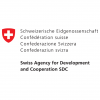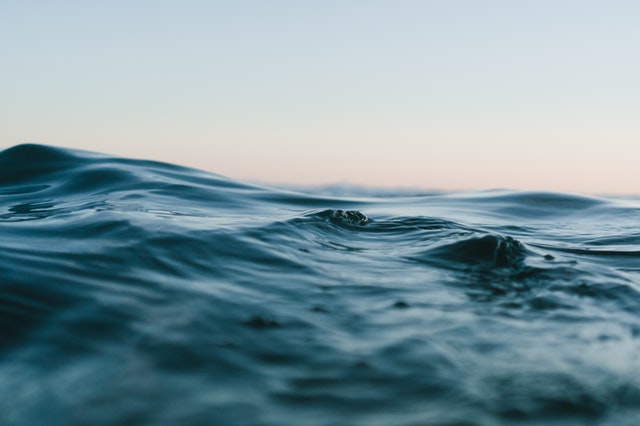Executive Summary
Research helps a journalist verify the information he or she has gathered. Research makes it possible to decide whether that information is true and correct. It helps the journalist make balanced judgments as an observer and to get the complete story. Research may make it possible for the journalist – and therefore his or her audience – to access information that might not yet be readily available in a public forum.
Research is absolutely necessary: the journalist needs to be certain to have gathered information from every angle in order to fulfil professional duties diligently. This is particularly important, when it comes to water related information, which is often difficult to access, comprises poor quality data or is known only by few experts.
Researching every aspect of a topic means that the journalist comes to his or her own conclusions independently – rather than being a mouthpiece for interest groups (e.g. government institutions, WASH NGOs or private sector networks with an interest e.g. in the privatization of water services) or individuals with their own agendas.
Research must be supported by the media in which the reports appear, whether that be broadcast, print, or online. Media organizations should support and develop research.
Different stages of researching water stories
Before researching
When new information reaches the newsroom:
1. Check the relevance:
Is this information important enough to be called “news” and to warrant further research?
2. Check the sources:
Is the source of this information trustworthy? What are the source’s sources, so to speak? Did the source observe this incident personally? Or did he or she hear it from someone else? Did the source have this experience personally? How did the information become known to him or her? And if it was not a personal experience, then who is the first source?
3. Ask yourself:
Is this source a neutral one? Is the source an expert? How is the source related to the topic of research? What the source’s vested interest in the water sector?
Fact-checking the research: questions to ask
- Is this information true and correct? Is everything there? Are the five ‘W’s (What, Who, Where, When, Why) and one ‘H’ (How) questions answered?
- Is data that is relevant for the story (e.g. on coverage, water availability and usage, etc.) solid and consistent? Does data vary across different sources?
- Does the information make sense? Is it logical? Is there a clear chain of events, or causality? Does this information seem like it could be true?
Procedures for research
1. Collect all the potential information that’s already been published on the topic – for example, from sector reports (e.g. by relevant ministries or regulators), libraries, data banks (e.g. JMP, WASHwatch, UN GLAAS), the Internet, and professional or industry publications.
2. Ask questions: conduct interviews with witnesses, water users, experts, critics, and other protagonists. It is best to speak to more neutral individuals first – for instance, experts on the topic. Later you can speak to less neutral individuals – say, water users or protagonists like staff from a relevant ministry with an agenda. Once you have the general, neutral information it becomes easier to critically assess what you are being told by other, more biased interviews. It also makes it easier to pose difficult questions to the non-neutral interviewees. When conducting interviews, it’s best to stick to a well-defined topic or angle.
3. Personal observations or research on-site: the journalist’s own experiences can be a valuable part of research and also give the journalist the opportunity to add colour and character to the writing.
Checklist
- Is this new information relevant? Does it come from trusted sources? Are the facts correct and does the information seem logical and make sense?
- Is data solid and consistent across different sources?
- Does the new information warrant further research?
- Is the procedure for research being followed as closely as possible?
- Has enough research been done, using information that’s already been published, to get a broad overview of the subject and to conduct knowledgeable interviews?
- Have all relevant individuals – witnesses, experts, victims, critics – been interviewed?
- Have the neutral interviewees been spoken with first so that hard questions can be asked of others later?
- Have all sources been double-checked for accuracy and trustworthiness?
- Has the most important information been verified by at least two sources? Has the journalist maintained the professional distance of a trained observer?
- Would the information be enhanced by the journalist’s own experiences on-site? Could the journalist’s own experiences be useful for storytelling?
Shortcuts to Journalism: The Basics of Print, Online and Broadcast Reporting
When basic questions about journalism come up, this handbook, written and produced by Media in Cooperation and Transition (MICT), provides clear, brief and precise answers. Shortcuts to Journalism isn’t just for journalists – it’s also helpful for non-journalists. Download the English version here or the Arabic version here.
Schmidt, E., Tirok, M. and Bösch, M. (2016): Shortcuts to Journalism: The Basics of Print, Online and Broadcast Reporting. Berlin, Germany: Media in Cooperation and Transition gGmbH PDFBBC Academy: Researching and Producing
In this section of the BBC Academy's website, readers learn how to find, research and produce a story.
http://www.bbc.co.uk/academy/journalism/skills/researching-and-producing [Accessed: 14.02.2018]In this section of the BBC Academy's website, readers learn how to find, research and produce a story.
WHO and UNICEF: Joint Monitoring Programme
WHO and UNICEF’s Joint Monitoring Programme (JMP) provides data related to drinking water coverage, sanitation and hygiene.
UN-Water Global Analysis and Assessment of Sanitation and Drinking-water (GLAAS)
The objective of GLAAS is to provide policy- and decision-makers at all levels with a reliable, easily accessible, comprehensive and global analysis of the investments and enabling environment to make informed decisions for sanitation, drinking-water and hygiene. Every two years a report is launched.
WASHwatch
WASHwatch provides data and information on policies and policy commitments, coordination and reporting mechanisms by countries as well as information on water sector donors.
Calling Bullshit
The world is awash in bullshit which involves language, statistical figures, data graphics, and other forms of presentation intended to persuade by impressing and overwhelming a reader or listener, with a blatant disregard for truth and logical coherence. This website aims at teaching you how to think critically about the data and models that constitute evidence in the social and natural sciences.


